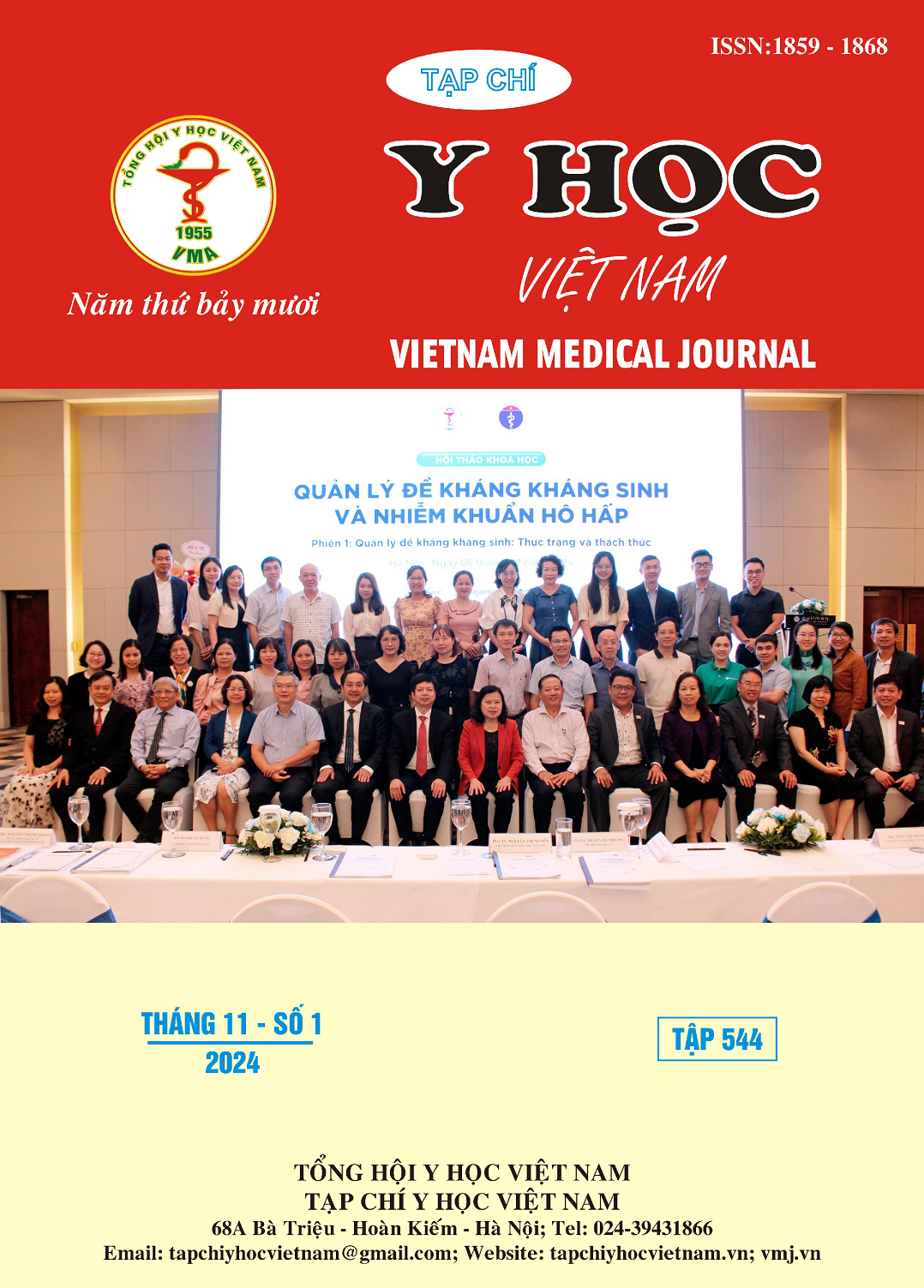INVESTIGATION OF SINGLE NUCLEOTIDE POLYMORPHISM RS17501010 ON THE CLDN-1 GENE IN ADULTS WITH ATOPIC DERMATITIS
Main Article Content
Abstract
Background: Atopic dermatitis (AD) is a common chronic skin disorder characterized by dry, itchy, and inflamed skin. Impaired skin barrier function plays a crucial role in the development of AD. Single nucleotide polymorphism (SNP) rs17501010 (G to T substitution) located on the CLDN-1 gene encoding claudin-1 protein has been associated with maintaining skin barrier structure and function in AD. Objective: To determine the clinical and genetic characteristics of SNP rs17501010 in Vietnamese adults with AD. Methods: A descriptive case series study was conducted to investigate the clinical characteristics and SNP rs17501010 features in adult AD patients visiting the Dermatology Hospital, Ho Chi Minh City, from January 2021 to March 2022. AD diagnosis was based on the Hanifin and Rajka criteria 1980. SNP rs17501010 information was collected from Sanger DNA sequencing of patient peripheral blood leukocytes. Results: A total of 82 adult AD patients participated in the study. Eighty-six percent of patients were within working age, with a median age of 36 years (32-40 years), and a male-to-female ratio of 1.49. A history of previous diagnoses of AD, asthma, and allergic rhinitis was reported in 84.15%, 8.54%, and 15.85% of patients, respectively. Family history of AD, asthma, and allergic rhinitis was reported in 41.46%, 4.88%, and 15.85%, respectively. Disease severity according to the SCORAD score was categorized as mild, moderate, and severe in 13.41%, 50.00%, and 36.59% of patients, respectively. The allele frequency of G was 95.73%, and the allele frequency of T was 4.27%. Genotype frequencies were GG: 91.46%, GT: 8.54%, and the TT genotype was not observed. The disease severity between the mild-moderate group and the severe group between the GG and GT genotypes showed a statistically significant difference (p=0.045). No statistically significant differences were observed in other characteristics. Conclusion: The allele frequencies of G and T for SNP rs17501010 were 95.73% and 4.27%, respectively. This SNP was significantly associated with disease severity according to SCORAD between the mild-moderate group and the severe group
Article Details
Keywords
: Atopic dermatitis, Claudin-1 gene, single nucleotide polymorphism, rs17501010.
References
2. Katsarou, S., et al., The Role of Tight Junctions in Atopic Dermatitis: A Systematic Review. J Clin Med, 2023. 12(4).
3. De Benedetto, A., et al., Tight junction defects in patients with atopic dermatitis. Journal of Allergy and Clinical Immunology, 2011. 127(3): p. 773-786.e7.
4. Ross-Hansen, K., et al., The role of glutathione S-transferase and claudin-1 gene polymorphisms in contact sensitization: a cross-sectional study. Br J Dermatol, 2013. 168(4): p. 762-70.
5. E Boers, M.B., V Vuong, A Benjafield, J Su, L Kaye, D Tellez, C Nunez, A Malhotra, An estimate of the global COPD prevalence in 2050: Disparities by income and gender. European Respiratory, 2022. 60(66): p. 4608.
6. Le, V.S., et al., A Vietnamese human genetic variation database. Hum Mutat, 2019. 40(10): p. 1664-1675.
7. Byrska-Bishop, M., et al., High-coverage whole-genome sequencing of the expanded 1000 Genomes Project cohort including 602 trios. Cell, 2022. 185(18): p. 3426-3440. e19.
8. Asad, S., et al., The tight junction gene Claudin-1 is associated with atopic dermatitis among Ethiopians. J Eur Acad Dermatol Venereol, 2016. 30(11): p. 1939-1941.


